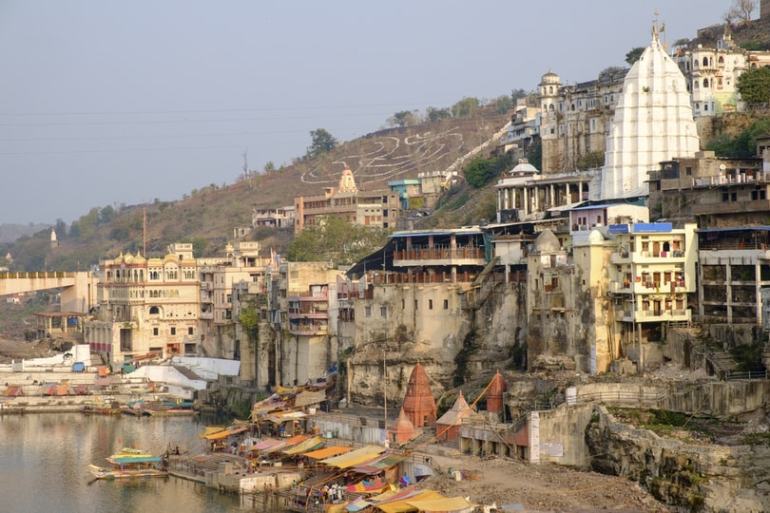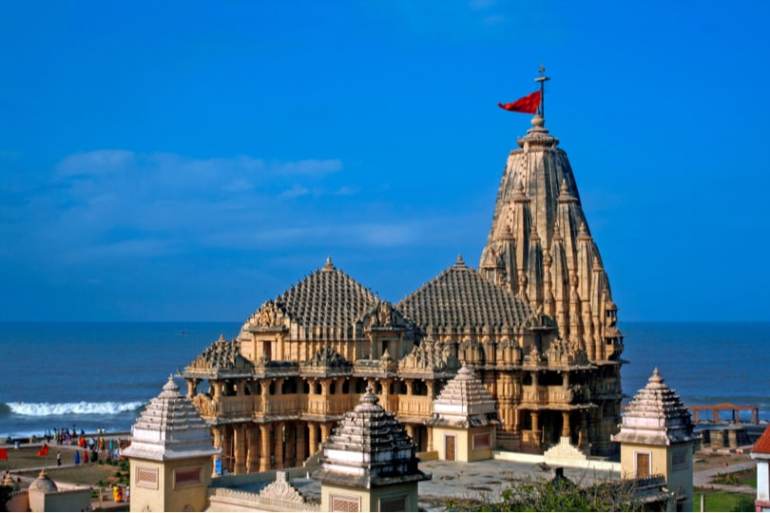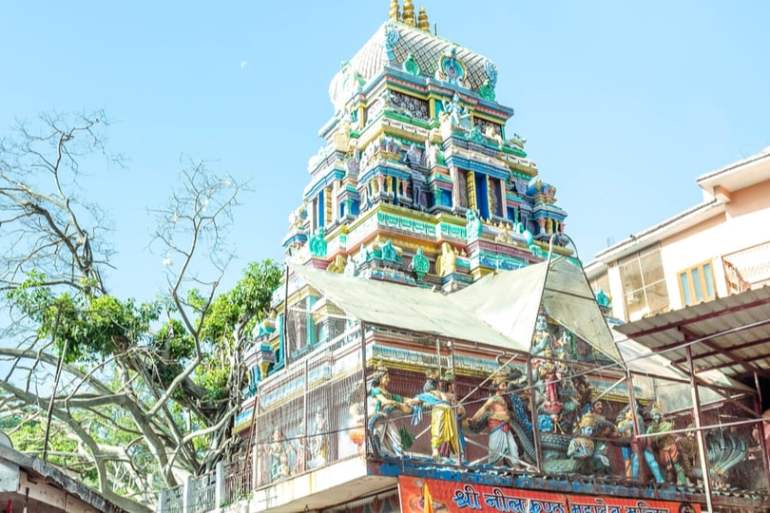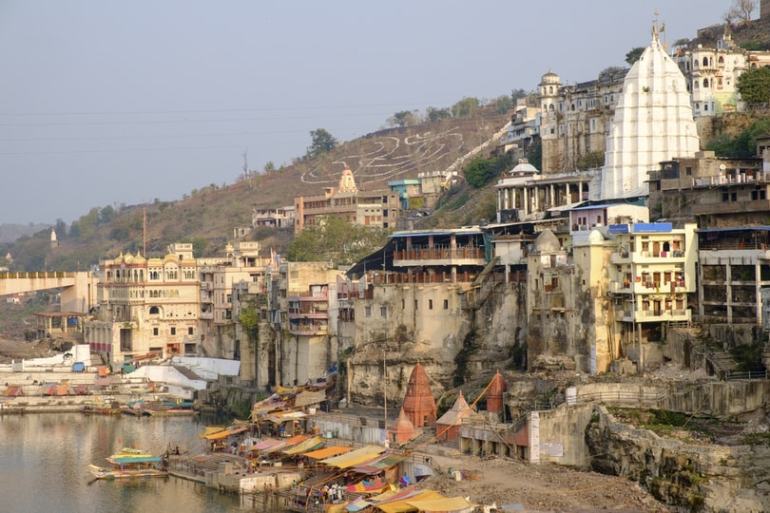Maha Shivratri is a yearly Hindu festival. It is one of the most sacred festivals for Lord Shiva devotees, who celebrate it to mark the holy union of Shiva and Parvati. But, there is more than just one reason why Shivratri is considered to be one of the most pious occasions by the followers of Shaivism. According to the Hindu calendar, Shivratri occurs every 13th night or 14th morning of the lunisolar month. Every year before winter ends and the summer begins, there is one great night dedicated to Shiva, which is celebrated as Maha Shivratri.
Unlike most Hindu festivals, the celebrations of Shivratri take place at night. Also, contrary to a lot of Hindu festivities, which ooze with cultural vibrance and opportunities to socialise, Shivratri is celebrated by taking time out to introspect, focus, meditate, and reflect.
Shivratri 2020: Isha Yoga Centre gears up for Mahashivaratri
Significance of Shivratri and why is it celebrated

The reasons behind Shivratri are related to both religion and astronomy. The followers of Shaivism consider Lord Shiva to be their Adi Guru – the first Guru – who became the origin of yogic traditions. Hence, for them Shivratri, the darkest night of the year, is an occasion to celebrate the grace of their lord. It is believed that the position of the planets on this night is such that there is a natural surge of energy throughout the entire human system. This energy is considered to be extremely beneficial for the overall physical and spiritual well being of a person.
Other than the planetary alignment, there are certain legends associated with the festival as well. Besides marking the wedding day of Shiva and Parvati, Shivratri is also celebrated to honor the day Shiva saved the world by consuming the poison that was churned from the ocean by gods and demons in search of ambrosia. Shivratri is also a tribute to Lord Shiva saving the Earth from the wrath of Goddess Ganga. Lord Shiva is believed to have caught her within his matted locks as she descended to the planet with life-shattering force, and then released her in parts or streams. To pay tribute to Lord Shiva, the savior, Shiv Lingas are bathed in holy water every year on this auspicious night.
Things to do on Shivratri
Unlike most Hindu festivals, Shivratri is celebrated by fasting, meditating, worshipping the Shiv Linga, or attending the Rudra or Mahashivratri Puja.
Here is a list of things to do on Shivratri.
Fasting
Most people fast on the occasion of Maha Shivratri. Fasting is done to detoxify the body and it is believed that the removal of toxins from the body eases the restlessness of the mind. The detoxified body and a calm mind can easily slip into a meditative state, which is a common ritual on the occasion of Shivratri.
Taking a holy bath
Many devotees visit the banks of the river Ganga in places like Haridwar and Rishikesh for a holy bath. Post the sacred dip, they visit the nearest Shiva temple to offer traditional Puja items such as milk, holy water, incense sticks, oil, fruits, etc. Offering milk to Shiv Linga on the occasion of Shivratri is such a common tradition across the country that small streams of milk can be seen flowing from the temples on this day. In most Shiv temples, prayers are offered to the Shiva Linga by the priest every three hours throughout the day and night on Shivratri. The vicinity of the temples is filled with the soothing and hypnotic chants of Shiva mantras and devotional prayers.
Drinking Thandai

On the occasion of Shivratri, many devotees honor their lord by drinking thandai – a drink made using cannabis, almonds, and milk. Cannabis is an essential part of the drink since it is believed that Lord Shiva had an eternal connection with the plant.
Attending fairs and other events
Shivratri is celebrated with the same amount of zeal and fervor across the country. For example, the Annamalai temple in Tamil Nadu’s Tiruvannamalai district witnesses one of the largest fanfares of the year on this day. Girivalam or Giri Pradakshina is organized here on Shivratri. It is a special ritual in which devotees walk barefoot on a 14-kilometer long stretch around the temple of Lord Shiva, which is located on the top of the hill. At sunset, huge oil lamps with camphor are lit on the top of the hill.
In Ujjain, the Mahakaleshwar temple is another revered shrine of Lord Shiva. On the occasion of Maha Shivratri, devotees gather in large numbers to offer prayers at the temple and the atmosphere almost buzzes with religious fervor.
In Gujarat’s Junagadh, the Maha Shivratri Mela is held every year. The Murghi Kund in Junagadh is believed to be the place where Lord Shiva came to take a bath. Hence, every year, devotees come to take a holy dip in the Kund to celebrate Maha Shivratri and honor their lord.
Places to visit during Shivratri
There are 12 Jyotirlingas spread across the country that one can visit to experience Maha Shivratri in its full glory. Here’s the list:
Somnath Jyotirlinga
The famous and the oldest Jyotirlinga, Somnath is situated in the coastal area of Gujarat’s Saurashtra. Known as the Shrine Eternal, Somnath temple is a popular pilgrimage destination and is believed to be the place where Lord Krishna completed his Leela and left for his heavenly abode.
How to reach Somnath temple

Somnath does not have an airport of its own, but it has connectivity to multiple cites via the airport in Diu. From here, Somnath is only 86 kms and it takes about two to three hours to reach the temple by road. Regular and luxury buses ply from Diu to Somnath regularly. You can also get here via taxi.
To reach Somnath by train, the nearest railway station will be in Veraval. It has good connectivity to major cities such as Mumbai and Ahmedabad and it is only five kms away from Somnath city.
Mallikarjun Jyotirlinga
The Mallikarjun Jyotirlinga located in Andhra Pradesh’s Kurnool district is one of the first Jyotirlingas where Lord Shiva and Goddess Parvati are believed to have lived together. The Mallikarjuna temple is one of the 18 Maha Shakti Peethas of Goddess Parvati. It is believed that after Goddess Parvati performed self-immolation, her body was cut into many pieces by Lord Vishnu, and Lord Shiva carried her remains with him. Her upper lip is believed to have fallen at this place and that is how the temple came into existence.
How to reach Mallikarjun Jyotirlinga
To reach the shrine, one must first reach Srisailam, a small town in Kurnool district of Andhra Pradesh located on top of a hill. The town does not have a railway station of its own thus, one needs to reach the Markapur railway station which is about 85 kms from Srisailam. The connectivity between the two towns is good and public transport is easily available to commuters.
The town does not have an airport either. So, the nearest airport to reach Srisailam is Begumpet airport. The town is about 234 kilometers from the airport and it can take up to five hours to reach here. Alternatively, you can also take a flight to Rajeev Gandhi International airport in Hyderabad to reach Srisailam. The town is about 200 kms from Hyderabad and it takes about 4 hours to reach by road.
Neelkanth Mahadev Temple

Taking a holy dip in the river Ganga is considered to be one of the most pious rituals of Maha Shivratri. Situated at a height of 1330 meters and located around 32 kms from Rishikesh, Neelkanth Mahadev temple witnesses the religious fervor in its full glory on the occasion of Maha Shivratri every year. Devotees flock to the temple on the occasion of Maha Shivratri to offer milk, coconut, flowers, honey, fruits, and water to Lord Shiva. There are two fairs organized at the temple every year – one organized on Maha Shivratri in February or March and the second in the month of July.
How to reach Neelkanth Mahadev Temple
The temple is about 30 kms from the town of Rishikesh. One can hire a taxi from Ram Jhula in Rishikesh and it will not take more than an hour to teach the temple from there. Rishikesh has its own railway station and has good connectivity with many cities. The nearest airport to reach Rishikesh is the Jolly Grant airport in Dehradun which is about 49 kms away from the town.
Omkareshwar Temple
Located on the banks of the river Narmada, Omkareshwar is a Hindu temple dedicated to Lord Shiva and a revered Jyotirlinga shrine. It is located on an island called Mandhata or Shivpuri in Madhya Pradesh and the shape of the island is believed to resemble the Hindu symbol ॐ.
How to reach Omakareshwar

The nearest airport that can be used to reach Omkareshwar is Devi Ahilyabai Holkar airport in Indore. The airport is about 63 kms from the temple. The airport is connected to all major cities and devotees can find many modes of transportation available at the airport in order to get to Omkareshwar.
Omkareshwar has its own railway station which has decent connectivity with several different cities and towns of the country.
Mahashivratri is a significant day for anyone who follows the path of spiritualism and Shaivism. Even if you don’t necessarily believe in the legends, Shivratri is important as it is also the time when all Shiv devotees come together and their religious fervor to celebrate their Adi Guru and his defeat over evil.